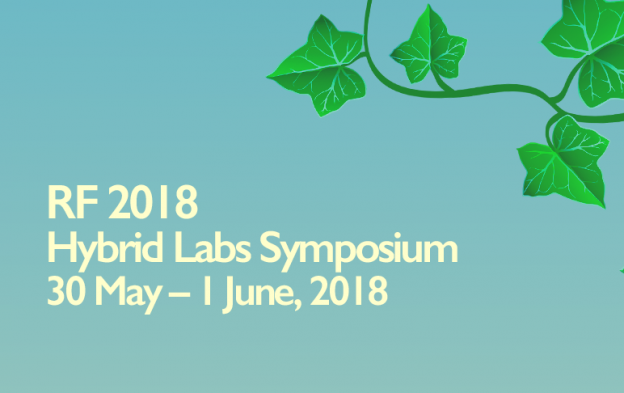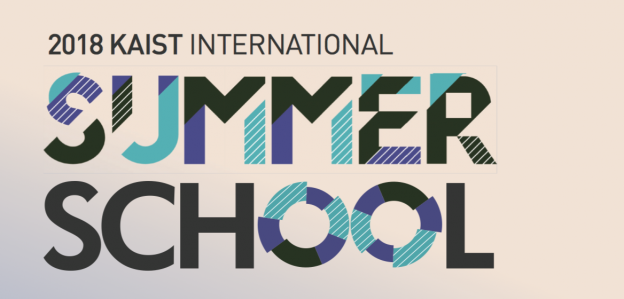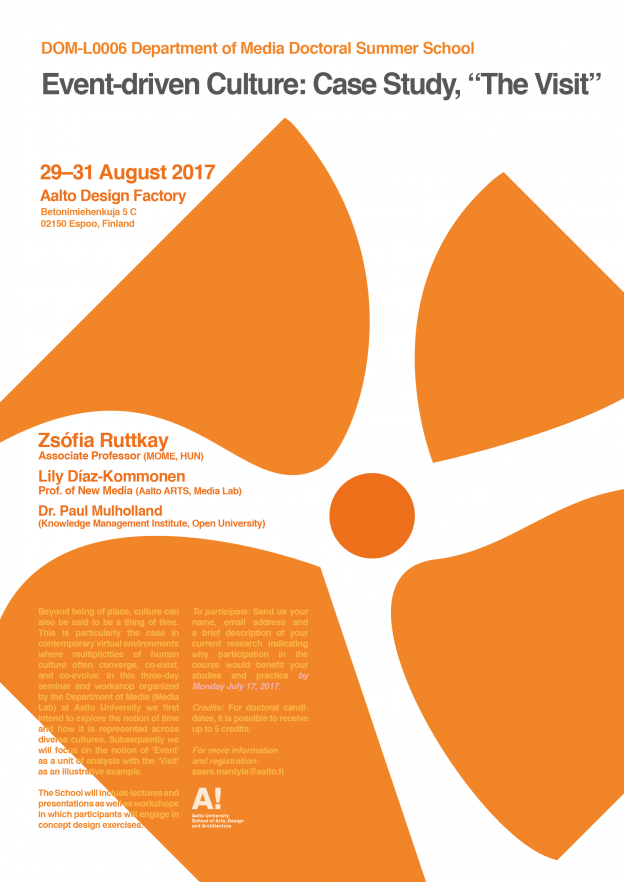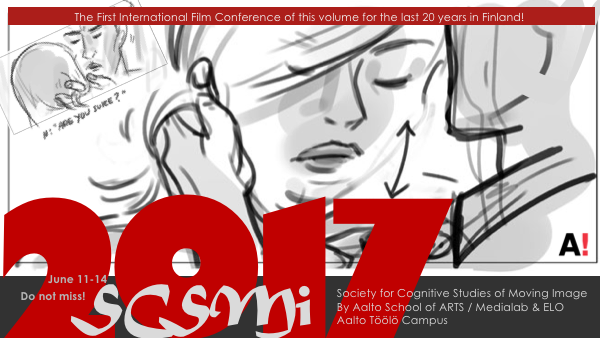Call for Proposals
RF 2018: Hybrid Labs Symposium
May 30 – June 1, 2018
Aalto University, Espoo, Finland
– – – – – –
Deadline – extended to 5 March, 2018
APPLY NOW: https://easychair.org/conferences/?conf=hls2018
– – – – – –
http://hybridlabs.aalto.fi
Hybrid Labs is the third edition of Renewable Futures conference that aims to challenge the future of knowledge creation through art and science. The HYBRID LABS will take place from May 30 to June 1, 2018 at Aalto University in Espoo, Finland, in the context of Aalto Festival. Celebrating 50 years of Leonardo journal and community, the HYBRID LABS conference will look back into the history of art and science collaboration, with an intent to reconsider and envision the future of hybrid laboratories – where scientific research and artistic practice meet and interact.
Our three-day media event medley includes:
May 30, 2018 – Exhibition Opening
Opening Programme features Oslofjord Ecologies Extended exhibition opening. The exhibition is based on results of artistic research processes following common workshops, field trips and earlier exhibitions and performances linked to the Creative Europe project Renewable Futures and the Nordic collaboration Hybrid Labs. Curated by Kristin Bergaust on behalf of Art in Society research group at HiOA, this cross-disciplinary exhibition includes contributions from visual arts, art and science, theatre, performance, design, visual culture, art didactics and urban research.
May 31, 2018 – Renewable Futures Conference
Renewable Futures conference will begin with keynotes addressing HYBRID LABS topic from different broader perspectives. Parallel tracks of presentations will discuss the future of HYBRID LABS, art and science collaboration, focusing on five main topics: hybrid practices (in art and science), hybrid storytelling, hybrid fabrication, hybrid reality, and hybrid economies.
June 1, 2018 – Collaboratory Day, Celebrating Leonardo’s 50th Anniversary
Collaboratory day and Leonardo birthday celebration includes guided tours of several of the Otaniemi campus laboratories and a workshop on collaboratory methods during the morning followed by afternoon keynote, sauna, and dinner. The topic of the keynote will be about Arts and Science collaboration and planetary healing. Also throughout the Lab tours, we want to stress the heritage aspects of the spaces, the campus and innovative aspects of art and science collaboration.
– – – – – –
Keynote Speakers:
- Roger MALINA / Executive Editor, Leonardo Publications at M.I.T Press / Professor, the University of Texas at Dallas.
- Nina CZEGLEDY / Artist, Curator and Educator on Art, Science and Technology / Leonardo Community, Toronto, Canada
- + others – to be confirmed
– – – – – –
More info: http://hybridlabs.aalto.fi/hls-2018-cfp-hybrid-labs-symposium-2018/
– – – – – –
Registration:
Early Bird fee until 15 April, 2018.
Early Bird Full Price: 68 EUR (normal price 86 eur).
Early Bird Student Price: 42 EUR (normal student price 56 eur).
Included: Coffee and Snacks, Sauna and Dinner (Lunch is not included).
REGISTER AT: https://eage.aalto.fi/?f/en/HLS2018
– – – – – –
CALL FOR PROPOSALS
We welcome submissions by academic researchers, designers, artists, scientists, students, social entrepreneurs, visionaries and other creative thinkers and practitioners to submit their proposals related to the topics (below).
List of Topics
- hybrid practices – combining art and science, technology and ecology, digital and biological in research and education
- hybrid storytelling – heritage and storytelling for linking virtual with the material domain of everyday life
- hybrid fabrication – innovative maker trends in art and design practices
- hybrid reality – interventions into the uncritical excitement about virtual reality, artificial intelligence and machine learning
- hybrid economies – artistic practices in-between sharing and selling, networking and fabricating
Submission Guidelines
The proposals could be submitted for the following forms of presentations:
- academic papers (full / short)
- artistic presentations (performative lectures / performances / participatory sessions)
- poster sessions
The conference proposals should include:
- Title and abstract (250 words max – text fields ‘Title’ and ‘Abstract’), mandatory;
- five to six keywords (text field ‘Keywords’), mandatory;
- short biography: 100 words (text field ‘Comments’), mandatory;
- you can also upload a file containing any additional relevant information, optional;
- please indicate in your abstract if you want to submit pictures or videos (max 100Mb) as part of your final submission.
Deadline for Conference Proposals (Abstracts) – February 19, 2018
Notifications of acceptance – March 2, 2018
APPLY NOW: https://easychair.org/conferences/?conf=hls2018
– – – – – –
Conference Submissions – for Selected Abstracts:
After receiving the notifications, the selected participants will be asked to submit their Full/Short Papers (working version – for pre-review), Posters (layout) and Artistic Presentations (Slides) by May 14, 2018.
1. Full/Short Paper Submission:
If your abstract for full/short paper will be selected, you will be asked to submit full/short paper for pre-review before the conference (working version). All papers must be original and not simultaneously submitted to another journal or conference:
– Full papers are up to 6000 words long including references and the presenter must prepare 20+10 minutes presentation.
– Short papers are up to 3000 words long including references and the presenter must prepare 10+5 minutes presentation.
2. Artistic Presentations:
Presentations should be prepared as powerpoint or keynote slides.
3. Posters:
Posters should be made in A1 format, and submitted as PDF.
Publication
Shortly after the conference, the selected participants will be asked to submit their final version of the paper for peer-review. The submitted papers will undergo the double-blind peer-review process to be published in Acoustic Space journal series (Vol. 18, 2019).
– – – – – –
When submitting your final papers, you should keep in mind the following:
- Your name. Delete your name from the first page or where ever it is mentioned in the paper.
- Acknowledgements. Please delete or mark “Acknowledgements removed”, if you have acknowledgements or thanks to those who helped you with the paper.
- Document properties. Please don’t send word or similar documents, because it might include personal information in the document (for example in Word, go to file à properties).
- Send your paper in pdf-format.
- Self-citation. Please anonymize your references or citations to your previous works.
- Images and Videos. Please hide all such information that can reveal you in videos or images you are sending along with your paper.
More info about the Acoustic Space, peer-reviewed journal series:
http://acousticspacejournal.com
– – – – – –
Conference website http://hybridlabs.aalto.fi
Submission link: https://easychair.org/conferences/?conf=hls2018
Proposal submission deadline February 19, 2018
Notifications of acceptance March 4, 2018
Deadline for selected abstracts May 14, 2018
REGISTRATION TO CONFERENCE: https://eage.aalto.fi/?f/en/HLS2018
– – – – – –
COMMITTEES
Conference Chair
Prof. Lily Díaz
The Local Conference Organisational Board
Prof. Lily DIAZ-KOMMONEN / Head of Research Department of Media, Aalto University, School of Arts, Design and Architecture, Espoo, Finland
Prof. Rasa SMITE / Liepaja University / RIXC / Riga, Latvia
Prof. Kristin BERGAUST / Oslo and Akershus University, Norway
Nina CZEGLEDY, Leonardo Community, Toronto, Canada
Juhani TENHUNEN / Aalto Studios, Espoo, Finland
Saara MÄNTYLÄ / Department of Media, Aalto University, Espoo, Finland.
The International Scientific Board of Renewable Futures Conference
Prof. Lev MANOVICH / Cultural Analytics Lab / The Graduate Center, City University of New York, USA
Ph.D. Jussi PARIKKA / Winchester School of Art / University of Southampton / UK
Ph.D. Geoff COX / School of Communication and Culture, Aarhus University, Denmark
Assoc. Prof. Laura BELOFF / IT University, Copenhagen / Finnish Bioart Society, Helsinki, Finland
Prof. Ursula DAMM / Bauhaus University Weimar, Germany
Dr. Vytautas MICHELKEVICIUS / Nida Art Colony, Vilnius Academy of Arts, Lithuania
Ph.D. Margrét Elísabet ÓLAFSDÓTTIR / Art Education at the University of Akureyri, Iceland
Assoc. Prof. Ilva SKULTE / Riga Stradins University, Latvia
Dr. art. Piibe PIIRMA / Tallinn University / Estonian Academy of Arts, Tallinn, Estonia
Ph. D. Raivo KELOMEES / Estonian Academy of Arts, Tallinn, Estonia
Prof. Miško ŠUVAKOVIĆ / Faculty for Media and Communication, University Singidunum, Belgrade, Serbia
Dr. Ellen PEARLMAN / Parsons / New School University, New York, USA
Ph.D. Chris HALES / Assist. Prof. and Study Director of New Media Art Doctoral Programe, Liepaja University, Liepaja, Latvia
Raphael KIM / PhD Student, Media and Arts Technology, Queen Mary University London, UK
Venue
Aalto University, Otakaari 1 x, Espoo Finland
Contact
lily.diaz@aalto.fi / saara.mantyla@aalto.fi
Sponsors
NORDPLUS
Aalto University
– – – – – –
Please note that this call was updated after its first publication.






